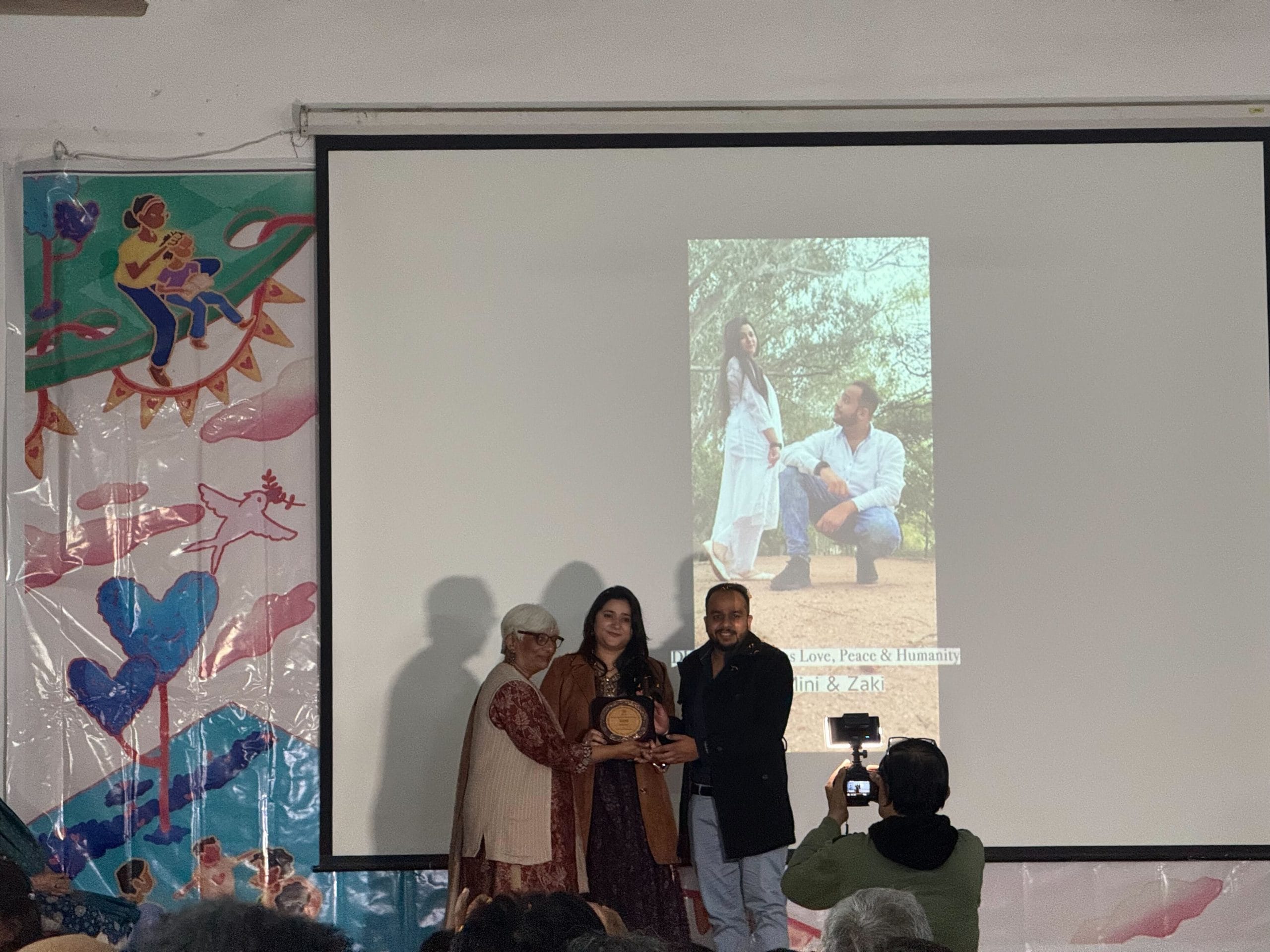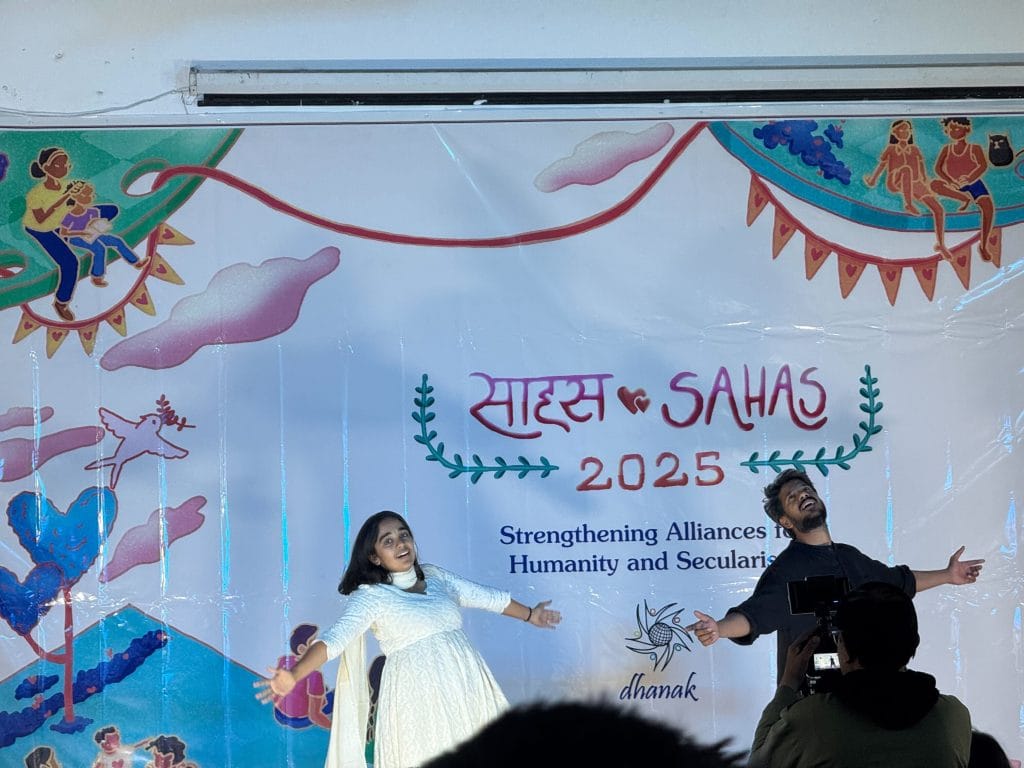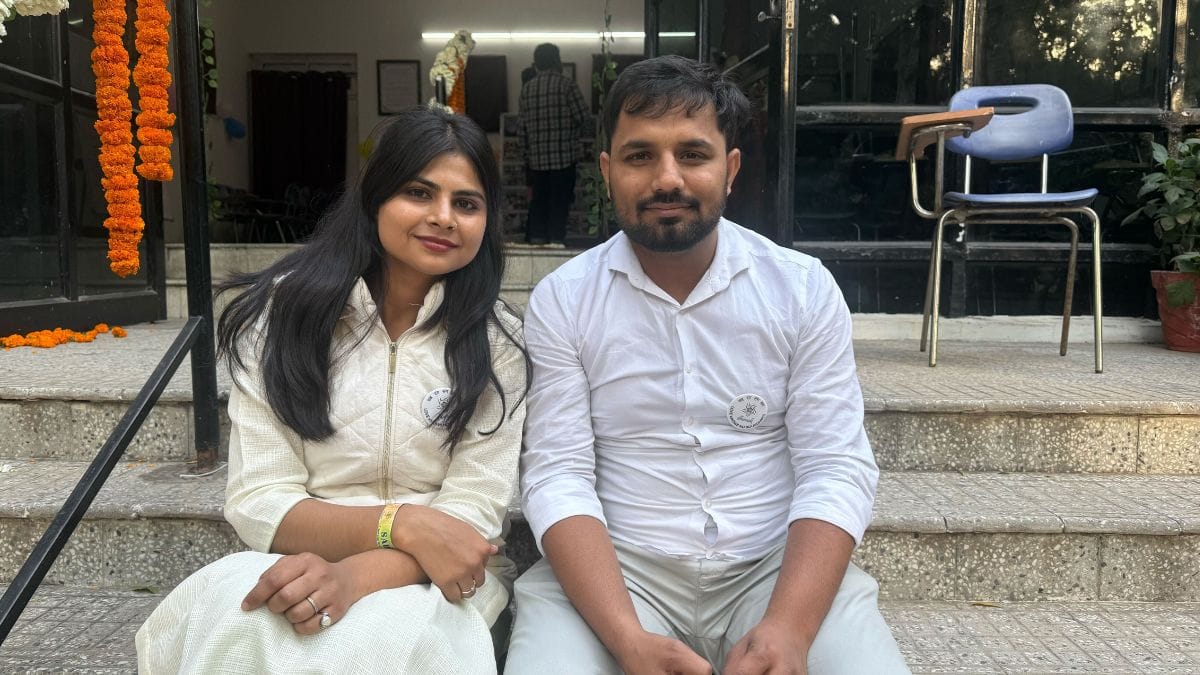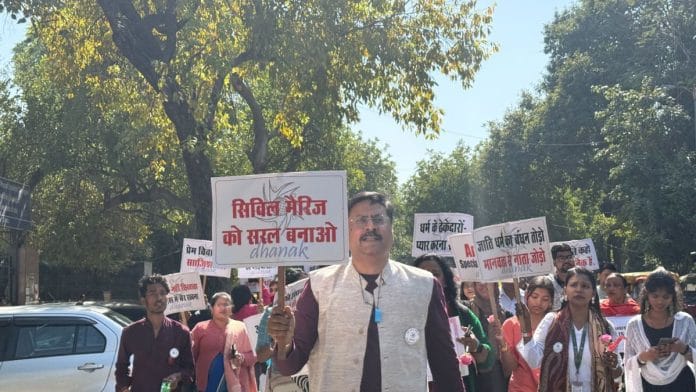New Delhi: In a brave display of love, more than 50 interfaith and intercaste couples took to the streets in New Delhi on Valentine’s Day. They walked hand in hand, their voices rising in unison with slogans such as “Jab pyaar kiya toh darna kya, jaati dharma ka karna kya — If we have loved, why should we fear? Why should caste or religion matter?”
Asserting themselves against the social, legal, and religious roadblocks to their love, couples from Ujjain, Chandigarh to Hyderabad consolidated under Sahas – an annual event organised by the NGO Dhanak. At the forefront of this march-cum-cultural programme was Asif Iqbal, Dhanak’s co-founder and the man who made their survival possible. His NGO has helped thousands of interfaith and intercaste couples marry under the Special Marriage Act, offering them a path to love against all odds.
“We are losing the values and principles of equality. Valentine’s Day isn’t just about romantic love—it’s about sharing, caring, and inclusivity. That’s why we don’t limit this [Sahas] to couples alone; families, children are all here,” Iqbal said about the 14 February event.
‘Dhanak Banenge Hum’
The Valentine’s Day celebration unfolded in two parts. The march at ITO was accompanied by powerful street play performances by students from Dhanak’s outreach centres as well as students from Delhi University’s Mata Sundari College. The plays tackled pressing issues of natal family violence, and juvenile justice.
After a lunch break, the attendees headed to Raja Ram Mohun Roy Memorial Hall for the second part of the event. The auditorium echoed with cheers as couples grooved to Bollywood songs, while children performed skits on subjects such as gender violence. This was followed by a panel discussion where women’s rights activists such as Nisha Sidhu, and author Indu Prakash, examined the current landscape of violence against interfaith and intercaste couples in the country.

Just like every year, Sahas honoured “survivor couples” by presenting wooden plaques to those who married this year. As their photos flashed on the screen in the backdrop of the NGO’s Dhanak Banenge Hum (We will become a rainbow) anthem, the room filled with a shared sense of triumph and solidarity.

“That memento still hangs in my room. It gives me hope and reminds us of everything we endured to be together—of not giving up on each other when things got hard,” said Ajay about the ‘award’ he received last year.
Also read: Don’t make people endure marriage. Not allowing divorce in Indian law is cruel: Hiren Mukherjee
Finding roots
To couples like Imran and Komal, who’ve struggled to have their families accept their union, organisations such as Dhanak and events such as Sahas offer a much-needed sense of belonging. From helping register marriage under SMA to finding a safe space for couples in gender-neutral shelters, the NGO has served as a salve to their pain and struggle.
“I’ve seen so many couples here—it gives me strength,” said an attendee, Imran Khan, about the NGO’s Valentine’s Day event. Imran registered his marriage with his Hindu partner, Komal, under the Special Marriage Act about a year and a half ago, after 15 years of togetherness. It couldn’t have happened without Dhanak, he emphasised.
“It feels like a family. We meet people from different states and different religions, all living together. Our own families couldn’t accept us, but here, we have a home. We sit together, eat together, talk, and support each other. Some even find witnesses here when no one else stands by them. This place is an extended family for us. That’s why I come back every year—to meet everyone, to see everyone. What better way to celebrate Valentine’s Day?”
Danishta, a Muslim woman who married her Hindu high school sweetheart, Ajay, in 2022, recalled how she and her partner first discovered Dhanak in 2021 through a YouTube video featuring another interfaith couple. Inspired by their story, they went straight to the NGO’s office in Mayur Vihar, where founder Asif Iqbal counselled Danishta first.

“As a woman, he wanted to be sure it was my decision,” she said. Even now, Danishta and Ajay’s families refuse to speak to them.
The 1954 Special Marriage Act is a legal framework that allows interfaith and intercaste couples to marry. To be eligible, both partners must meet the legal age requirement—21 for men and 18 for women—be of sound mind, and not already married.
Addressing violence
Dhanak has expanded its mission beyond marriage support to become a leading advocate for the safety and legal rights of individuals facing violence from their own families. It focuses on the unique vulnerabilities of young adults whose choices in education, employment, and relationships challenge family expectations and often put them at risk of honour killing.
According to Asif Iqbal, Dhanak’s focus is not on changing society outrightly but on working with families—the fundamental unit of society. “We want to engage with families, especially those of adult survivors, but there’s usually little scope. However, with minor survivors, it’s possible,” he added. Dhanak is now actively addressing natal family violence—any form of violence inflicted by a family on its own children, whether they are minors or adults.
Iqbal pointed out that many young people naturally fall in love, regardless of class and caste barriers. However, when they leave home, they are often forcibly brought back by the police and, under the direction of the Child Welfare Committee (CWC), restored to their families. “Once restored, there’s a void. The family, still antagonised, doesn’t allow the child to grow as a regular child,” he said. To bridge this gap, Dhanak, in accordance with CWC directives, regularly counsels children and provides necessary support.
Reflecting on Dhanak’s journey, co-founder Ranu Kulshreshtha, Asif Iqbal’s wife who also married him under the Special Marriage Act, recalled a time when the team consisted of just three people, and when Sahas was a massive three-day event. She also noted a sobering reality—this year, the number of couples attending has declined.
But Sahas remains “more than just an annual gathering” for interfaith and intercaste couples. “It’s a testament to love, survival, and the ongoing fight for the right to choose one’s partner.”
(Edited by Zoya Bhatti)






